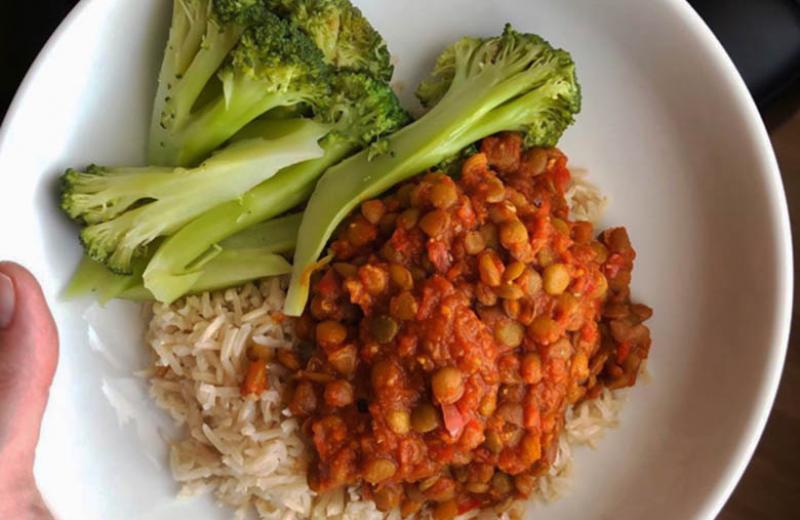Do you pay attention to how much iron you consume? Most people don’t, but many health organizations are urging people to choose plant-based proteins more often, and this could mean taking a closer look at where your iron comes from.
Iron is a very important mineral that carries oxygen throughout the body. Symptoms of iron deficiency can include fatigue, a weakened immune system, and difficulty regulating body temperature.
There are two types of iron:
- Heme iron, which is found in animal products like meat and seafood.
- Non-heme iron, which is from plants.
Non-heme iron doesn’t get absorbed as well, so people who eat a vegetarian or vegan diets need to consume almost twice the recommended amount of iron as people who eat meat. Also, women need more than twice the amount of iron than men, and pregnant women need even more!
The best way to make sure you’re getting enough iron is to include a good source of iron at each meal and snack. Other than the small amount of iron in a multivitamin or prenatal vitamin, it’s important not to take an iron supplement unless you’ve received a diagnosis of iron deficiency and have spoken to your doctor.
You can find iron in a variety of plant foods. Some of the staples in my diet include:
- Dried apricots, tomato paste, and greens (for instance: spinach, kale, and beet greens)
- Oatmeal, bran, and iron-fortified cereal
- Edamame, tofu, lentils, beans, chickpeas, sesame seeds, pumpkin seeds, and tahini
- Blackstrap molasses
If you’re trying to increase your iron intake, it’s important to squeeze in extra iron wherever you can:
- Sprinkle savoury dishes with sesame seeds.
- Use peanut butter and tahini to create a sauce or dressing.
- Use blackstrap molasses in place of some of the maple syrup or honey in baking.
- Include a variety of fruits and vegetables with each meal.
- Use onions and garlic frequently in your cooking. Onions and garlic can increase absorption of iron.
- Vitamin C also increases the absorption of iron.
There are many factors (other than intake of dietary iron) that can affect your iron levels. If you have questions about how much iron you should be consuming or if you think you might be iron deficient, speak with your doctor or a Registered Dietitian.














Comments